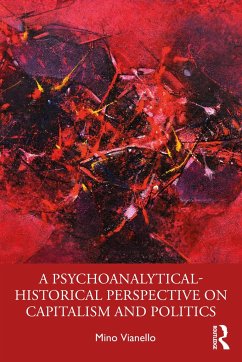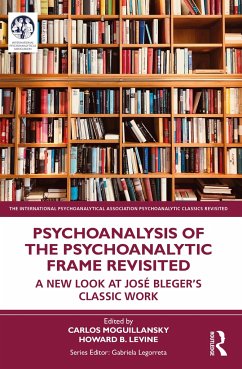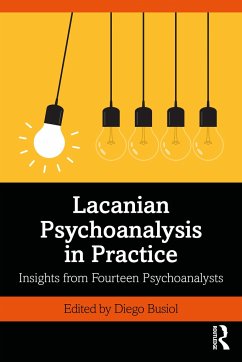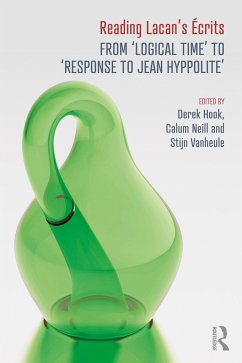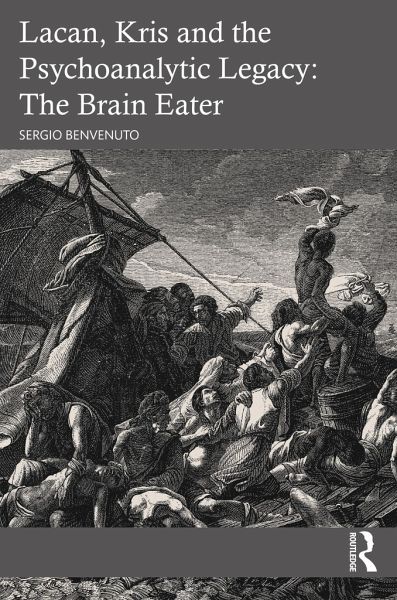
Lacan, Kris and the Psychoanalytic Legacy
The Brain Eater
Versandkostenfrei!
Versandfertig in 6-10 Tagen
31,99 €
inkl. MwSt.
Weitere Ausgaben:

PAYBACK Punkte
16 °P sammeln!
Lacan, Kris and the Psychoanalytic Legacy: The Brain Eater examines the case of a scholar which was commented on by three leading psychoanalysts of the 20th century: Melitta Schmideberg, Ernst Kris, and Jacques Lacan.Sergio Benvenuto unpicks the complex case history of the patient he calls "Professor Brain", a man who struggled to publish his research because of his fixation on plagiarism, and who has never been identified. Benvenuto reconstructs the case through the first-hand accounts of the patient's analysts and Lacan and sets it in the context of mid-century psychoanalytic debate. As we p...
Lacan, Kris and the Psychoanalytic Legacy: The Brain Eater examines the case of a scholar which was commented on by three leading psychoanalysts of the 20th century: Melitta Schmideberg, Ernst Kris, and Jacques Lacan.
Sergio Benvenuto unpicks the complex case history of the patient he calls "Professor Brain", a man who struggled to publish his research because of his fixation on plagiarism, and who has never been identified. Benvenuto reconstructs the case through the first-hand accounts of the patient's analysts and Lacan and sets it in the context of mid-century psychoanalytic debate. As we progress through the patient's story, Benvenuto explains Lacan's theories as they apply to the case: the "foreclosure" of orality; obsessional neurosis; mental anorexia; and, above all, the reasons for his opposition to Ego psychology, of which Kris was one of the most important representatives.
This book will be of great interest to psychoanalysts in practice and in training, psychiatrists and clinical psychologists. It will also be of interest to academics and scholars of philosophy, the history of psychoanalysis, literature, and cultural studies.
Sergio Benvenuto unpicks the complex case history of the patient he calls "Professor Brain", a man who struggled to publish his research because of his fixation on plagiarism, and who has never been identified. Benvenuto reconstructs the case through the first-hand accounts of the patient's analysts and Lacan and sets it in the context of mid-century psychoanalytic debate. As we progress through the patient's story, Benvenuto explains Lacan's theories as they apply to the case: the "foreclosure" of orality; obsessional neurosis; mental anorexia; and, above all, the reasons for his opposition to Ego psychology, of which Kris was one of the most important representatives.
This book will be of great interest to psychoanalysts in practice and in training, psychiatrists and clinical psychologists. It will also be of interest to academics and scholars of philosophy, the history of psychoanalysis, literature, and cultural studies.






